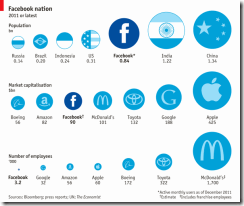The Securities and Exchange Commission (SEC) is studying new surveillance initiatives that may see the establishment of a special division to monitor online chatter targeting so-called trading gangs, SEC Commissioner Juanita Cueto said on Thursday.Trading gangs, according to Cueto are loosely defined as short-term trader syndicates who have both the resources and numbers to drive market prices and volumes.She added that the trading rings that “play” the market are nothing new in the country or even abroad, but she noted that their influence had been growing in recent years, aided by the anonymity offered by the Internet and the influx of new and relatively inexperienced investors who may fall prey to these groups.“They have pseudo names on the Internet. The scary part is they buy and sell in unison. Some of their analyses are inaccurate and can hurt issuers,” Cueto told the BusinessMirror. “It is a concern of legitimate brokers and issuers.”She said the surveillance measures could involve closer scrutiny of Internet-based stock-market forums.
It is ultimately always the subjective value judgments of individuals that determine the formation of prices. Catallactics in conceiving the pricing process necessarily reverts to the fundamental category of action, the preference given to a over b. In view of popular errors it is expedient to emphasize that catallactics deals with the real prices as they are paid in definite transactions and not with imaginary prices. The concept of final prices is merely a mental tool for the grasp of a particular problem, the emergence of entrepreneurial profit and loss.
In the market society there are money prices. Economic calculation is calculation in terms of money prices. The various quantities of goods and services enter into this calculation with the amount of money for which they are bought and sold on the market or for which they could prospectively be bought and sold. It is a fictitious assumption that an isolated self-sufficient individual or the general manager of a socialist system, i.e., a system in which there is no market for means of production, could calculate. There is no way which could lead one from the money computation of a market economy to any kind of computation in a nonmarket system.
The concept of a "just" or "fair" price is devoid of any scientific meaning; it is a disguise for wishes, a striving for a state of affairs different from reality. Market prices are entirely determined by the value judgments of men as they really act.
This comment by a market practitioner from the same article “It could be really hard to prove wrongdoing this way,” is half correct, but has been obscured by the misleading reference of “noting how identities can be masked online”.
But whoever is ready to grant to the government this power would be inconsistent if he objected to the demand to submit the statements of churches and sects to the same examination. Freedom is indivisible. As soon as one starts to restrict it, one enters upon a decline on which it is difficult to stop. If one assigns to the government the task of making truth prevail in the advertising of perfumes and toothpaste, one cannot contest it the right to look after truth in the more important matters of religion, philosophy, and social ideology.
When government becomes involved in the enterprise of law, both the rules of conduct and the institutions for enforcement are likely to change. The primary functions of governments are to act as a mechanism to take wealth from some and transfer it to others, and to discriminate among groups on the basis of their relative power in order to determine who gains and who loses.
Inflation, to sum up, is the increase in the volume of money and bank credit in relation to the volume of goods. It is harmful because it depreciates the value of the monetary unit, raises everybody's cost of living, imposes what is in effect a tax on the poorest (without exemptions) at as high a rate as the tax on the richest, wipes out the value of past savings, discourages future savings, redistributes wealth and income wantonly, encourages and rewards speculation and gambling at the expense of thrift and work, undermines confidence in the justice of a free enterprise system, and corrupts public and private morals.
Commercial and financial crisis are intimately bound up with transactions that overstep the confines of law and morality shadowy though these confines be. The propensities to swindle and be swindled run parallel to the propensity to speculate during a boom. Crash and panic, with their motto of sauve qui peut induce still more to cheat in order to save themselves. And the signal for panic is often the revelation of some swindle, theft embezzlement or fraud
Money is the barometer of a society's virtue. When you see that trading is done, not by consent, but by compulsion--when you see that in order to produce, you need to obtain permission from men who produce nothing--when you see that money is flowing to those who deal, not in goods, but in favors--when you see that men get richer by graft and by pull than by work, and your laws don't protect you against them, but protect them against you--when you see corruption being rewarded and honesty becoming a self-sacrifice--you may know that your society is doomed. Money is so noble a medium that is does not compete with guns and it does not make terms with brutality. It will not permit a country to survive as half-property, half-loot.


